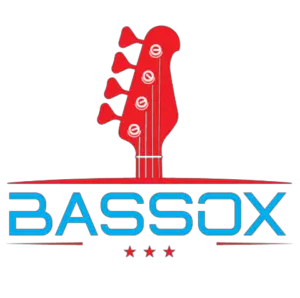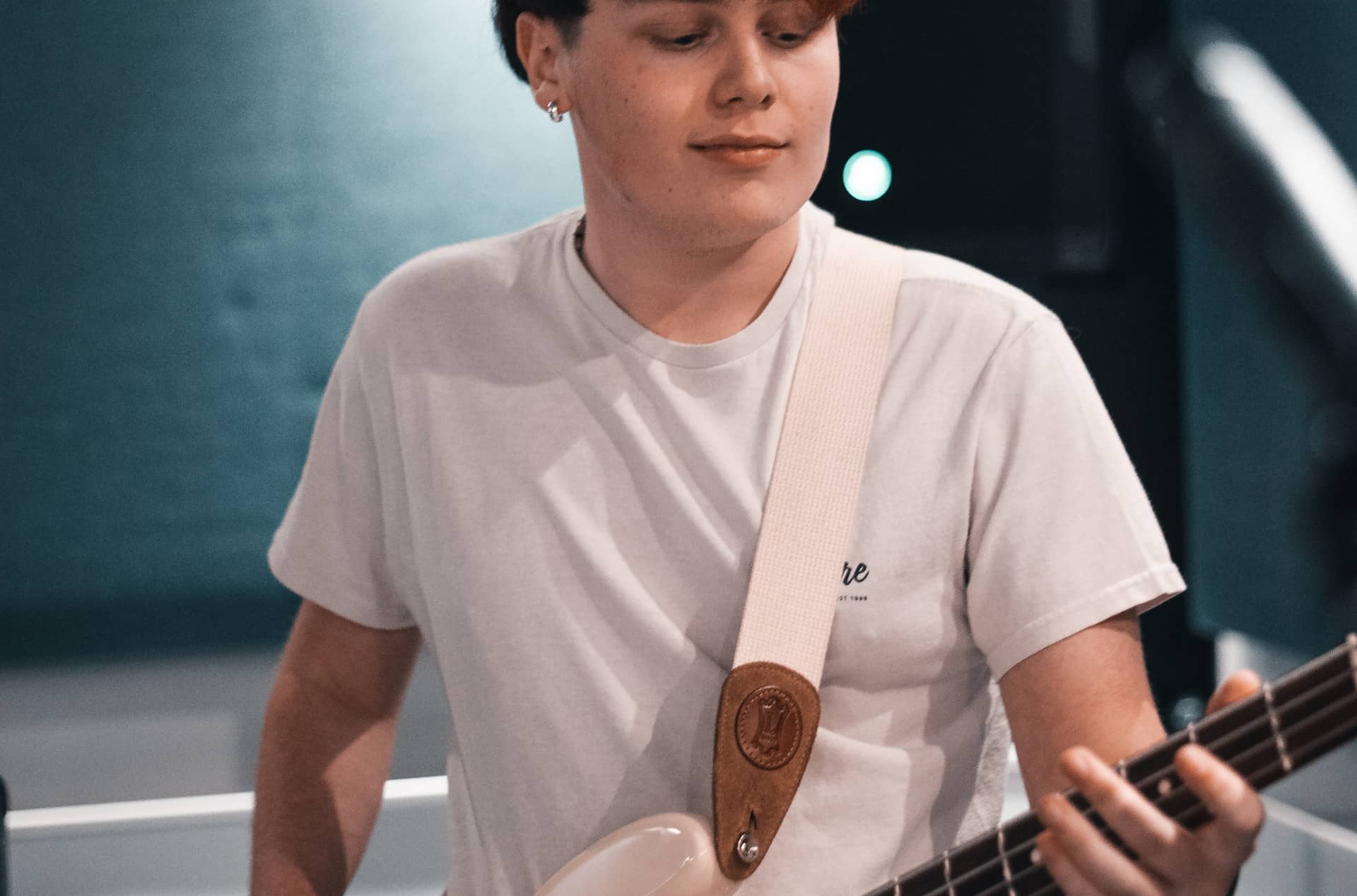When it comes to the value of bass lessons, bassists tend to disagree quite a bit. Some say they are completely necessary to see meaningful improvement. Others find them pointless with all the online resources that are available for learning the bass. So which is true, and more importantly, are bass lessons worth it?
In general, bass lessons will help you achieve your goals as a bassist faster. Thus, lessons are worth it for bassists who value faster improvement and fixing lacks in their technique and knowledge. If you are playing bass casually or don’t care for the theoretical aspect of it, lessons will in all likelihood not be worth it.
The issue here is that people often have a different definition of what “worth it” means.
Will bass lessons make you a better bassist faster? Yes.
Is it worth spending the money on lessons for everyone? No, it all depends on what you are looking to get out of playing the bass.
I was a self-taught bassist from 16 and took lessons for the first time at 23. Therefore, I decided to write this article to show you my point of view.
Do I need a teacher to learn bass?
A teacher is not necessary to learn the bass guitar. Lessons are however beneficial for ensuring you learn the basics of playing bass correctly. A teacher will also help you identify lacks in your playing and theoretical knowledge you would not have noticed on your own as you progress.
Your goals as a musician dictate how big of a need you have for a teacher and how much you should bass practice each day. Thus, whether you need a teacher or not greatly depends on what level your bass playing is at, and what level you want to achieve.
Beginner
While lessons will help, you don`t need a teacher to casually play the bass and see gradual improvement. There are plenty of great resources online if you want to become self-taught.
It is perfectly possible to get to a level where you can play in a band and perform live using strictly free online lessons. Taking lessons will however speed up this process. They are also a great investment early on if you are looking to take your playing past this stage at a later point.
Intermediate
For intermediate bassists, or bassists looking to take their playing past beginner level, lessons should be a serious consideration. Chances are that when you have played for a year or two, you will feel like you are decent at the bass. I know I did, but in hindsight, I couldn’t have been more wrong.
Related reading: What Makes A Bassist Intermediate?
This is because for self-taught bassists it`s easy to see what we are good, at while being clueless about our lacks. These weaknesses can be anything from poor articulation, to lack of theoretical knowledge, to suboptimal finger positioning.
A teacher can help you identify these weaknesses and show you how to improve upon them. Do you have to? No, but it will be helpful and save you a lot of trouble down the road if you are looking to take your playing to the next level.
Professional
If you are looking to become a professional bassist, lessons are close to a necessity. This is because lessons ensure that you are learning all aspects of being a bassist thoroughly.
Just like learning the basics, you can become a professional bassist without lessons. However, making a living is vastly different from having a hobby. Making a living playing bass is competitive and difficult. If this is your goal, you want to ensure that you are giving yourself the best chance possible to attain it. Thus, I advise anyone who wants to reach this stage to take lessons.
Developing bad habits or leaving gaps in your theoretical knowledge can result in lost career opportunities. Lessons can assist you in making an income from playing the bass and are thus unquestionably worth it.

How can I teach myself bass?
You can teach yourself bass online through a free or paid course. Alternatively, you can use text-based guides, videos, blogs, or forums to teach yourself bass. Video courses tend to cover all the basics and provide demonstrations. This makes them the fastest and easiest way to learn the bass on your own.
If you are learning bass on your own, you should make use of the vast amount of resources available online. I recommend sticking to video content whenever possible. This is because seeing and hearing what is being taught makes it significantly easier to both apply and understand the learning material.
I also recommend sticking to a full course that takes you through everything you need to learn. A free course is fine, but avoid binging random videos about learning bass. Utilizing random videos will help you improve at the bass, but it will be slower than taking a course. This approach will also leave multiple gaps in your knowledge and technique.
Best free bass course
Most courses have a cost, but there are some great free ones out there too. StudyBass has 3 free in-depth courses here. These consist of multiple videos, with thorough explanations on the basics of playing the bass guitar.
This course claims to put you on the track to not be a bass player, but a bass-playing musician. This is exactly the type of philosophy a beginner course should have. For a free course, the quality is unparalleled. The videos are concise and together the 3 courses cover everything a beginner-level bassist needs to know.
Best paid bass course
If you are willing to pay for bass courses, I recommend TalkingBass. This is because their library of courses is incredibly comprehensive and in-depth. They also have amazing testimonials from other bassists who have taken their courses.
The material is explained and demonstrated in an easily understandable manner. If you are willing to practice regularly and want to make the most of your time, TalkingBass is the best course I have seen for optimizing your progress.
At what age should you start bass lessons?
In general, bassists of all ages and skills levels can benefit from taking bass lessons. While there is no upper threshold for when you should take lessons, bass lessons will be more beneficial if you are above the age of 8.
A common misconception I have seen is that people believe they are too old to take bass lessons. While I agree that taking them early on is beneficial, bassists of all ages can gain something from lessons.
This holds true whether you are 8 or 80, or whether you are a complete beginner or are making a living playing bass.
For a young child, I believe lessons to be the most beneficial from age 8 and up. This is mainly due to the size of the bass, and the fact that the basics can be somewhat theory-heavy.
Children below 8 can be deterred by this. Around 8 they are children are generally big enough to play the instrument to some extent. They can also comprehend some of the less dry basics. With that said, it is fine for a younger child to take lessons if they feel motivated and have an accomodating teacher.
Conclusion
Lessons will be beneficial for all bassists. They are never 100% necessary to reach your goals but work as a safety net to ensure that you go about reaching them correctly.
If you are to take lessons, you should consider a couple of things when choosing a teacher. First of all, what is your goal? If you just want to learn the basics, most teachers will do. If you want to become a professional, it might be worth investing in a teacher who is a professional themselves and preferably has a good bit of experience.
You should also consider whether you want in-person or online lessons. I find in-person lessons to be superior because they make it easier for a teacher to fix mistakes in your technique, which might be less obvious online. The downside of in-person lessons is that they are generally more costly, and you have significantly fewer teachers to choose from.
Regardless, if you are on the fence about taking lessons, I recommend giving them a try. They are a supplement to your solo practice, and will almost always help you improve quicker.
Despite being an experienced bassist by the time I first took lessons, they were of great benefit to me personally. Just like many other intermediate bassists, I simply did not know how much I didn’t know. Not only did this help me greatly at the time, but it has kept me humble and objective about my playing ever since.
Are you looking to start playing bass? An often overlooked question when starting out is whether to choose a long-scale or short-scale bass. People tend to default to a long scale without giving it a second thought. However, this is not always the best option. To learn more, read my article on whether you should start with a short-scale bass as a beginner?

